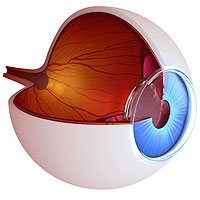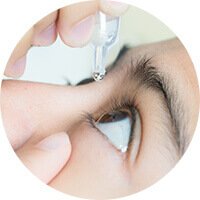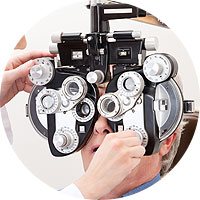
Getting older comes with many physical changes. Your eyes are especially vulnerable to aging, and many processes have to work efficiently to produce quality vision.
One problem you will likely face at some point in your life is cataracts. Everyone has lenses inside of their eyes that make vision possible.
These lenses are clear when you are young. However, as the material inside breaks down, they cloud over.
When light cannot pass through anymore, it becomes difficult to see. The only way to restore vision loss caused by cataracts is cataract surgery.
Keep reading to learn if there are signs that you need to have cataract surgery!
What Is A Cataract Evaluation?
A cataract evaluation is a visit with your eye doctor to test for cataracts specifically. During this evaluation, your eye doctor will use special instruments to determine if you have cataracts and, if so, how advanced they are.
Your ophthalmologist will use an ophthalmoscope and a slit lamp to light up the eye and magnify the insides. By doing this, they can easily see the location of the cataract, how large it has grown, and even what kind of cataract it is.
Not all cataracts are the same. They can grow differently inside the eye, which can cause you to experience distinct symptoms.
Nuclear Cataract
A cataract that grows in your lens’s center is a nuclear cataract. It is the most common type of cataract.
After developing, a nuclear cataract may cause colors to become muddy.
Cortical Cataract
A cataract that grows around the edge of your lens first is a cortical cataract. When these cataracts mature, wedges form pointing into the center of the lens.
This type of cataract looks similar to a bicycle wheel. At first, your peripheral vision will be affected.
Cortical cataracts also tend to create problems with glare.
Posterior Subcapsular Cataract
A cataract that grows from the backside of the lens is a posterior subcapsular cataract. These are usually a symptom of long-term steroid usage or diabetes.
These cataracts affect low-light vision particularly strongly.
How Will Cataracts Affect My Life?
A cataract usually does not need to be removed immediately after diagnosis. Your eye doctor will typically recommend delaying cataract surgery until the cataract symptoms begin to interfere with your daily life.
Interference in daily life can happen in several different ways:
Color Changes
Seeing colors vibrantly is important and valuable to the quality of your life. If your cataracts are causing your vision to take on a noticeable yellowish-brown tint, your cataract surgery date may be approaching.
Close-Up Tasks
You may not realize how often you need to be able to see up close until you experience cataracts. Reading and texting may become challenging as your cataracts develop.
Night Driving
A clear sign that it is time for cataract surgery is if it impacts your safety. Driving at night may become difficult and dangerous with mature cataracts.
Need for Light
If you constantly need to get more light in order to do everyday things, like reading and cooking, it may be time to have your cataracts removed.
If you are experiencing any of these symptoms, visit your eye doctor for a cataract evaluation.
Are your symptoms interfering with your day-to-day life? Schedule a cataract evaluation at Eye Care Specialists Scranton, PA, today!

















